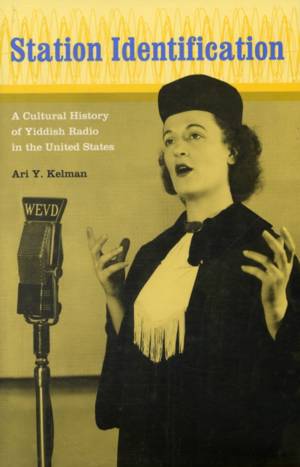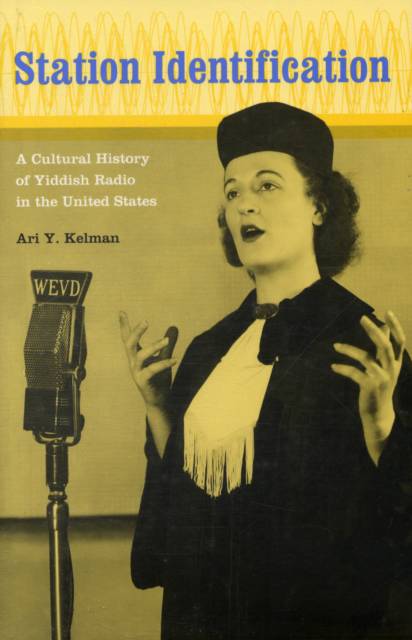
- Afhalen na 1 uur in een winkel met voorraad
- Gratis thuislevering in België vanaf € 30
- Ruim aanbod met 7 miljoen producten
- Afhalen na 1 uur in een winkel met voorraad
- Gratis thuislevering in België vanaf € 30
- Ruim aanbod met 7 miljoen producten
Zoeken
Station Identification

A Cultural History of Yiddish Radio in the United States
Ari Y Kelman
Hardcover | Engels
€ 144,45
+ 288 punten
Prijzen
Omschrijving
This study examines the culture of Yiddish radio in the United States during radio's golden age. Ari Y. Kelman explores the dynamic relationships between an immigrant population and a mass medium and between audience and community. By focusing on voices previously excluded from radio histories, this treatment of non-English-language radio breaks new ground in the study of both American mass media and immigrant culture. Yiddish radio directly addressed the everyday lives of Jewish immigrants, while providing them with invaluable guidance as they struggled to become American. Throughout the 1930s and 1940s, radio created a virtual place where Jewish immigrants could listen to voices like theirs and affirm the sound of their community as it evolved, particularly in light of World War II and the years that followed.
Specificaties
Betrokkenen
- Auteur(s):
- Uitgeverij:
Inhoud
- Aantal bladzijden:
- 304
- Taal:
- Engels
Eigenschappen
- Productcode (EAN):
- 9780520255739
- Verschijningsdatum:
- 27/05/2009
- Uitvoering:
- Hardcover
- Formaat:
- Genaaid
- Afmetingen:
- 155 mm x 229 mm
- Gewicht:
- 635 g

Alleen bij Standaard Boekhandel
+ 288 punten op je klantenkaart van Standaard Boekhandel
Beoordelingen
We publiceren alleen reviews die voldoen aan de voorwaarden voor reviews. Bekijk onze voorwaarden voor reviews.













